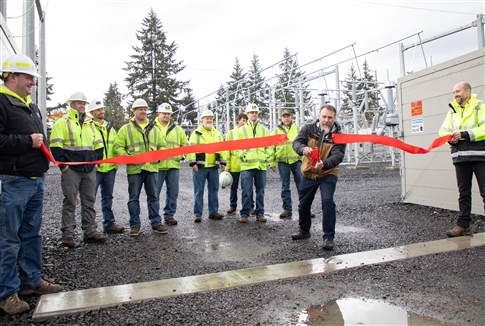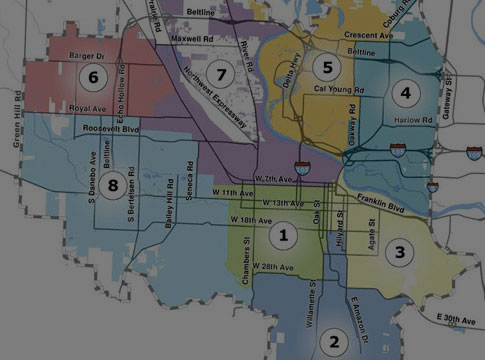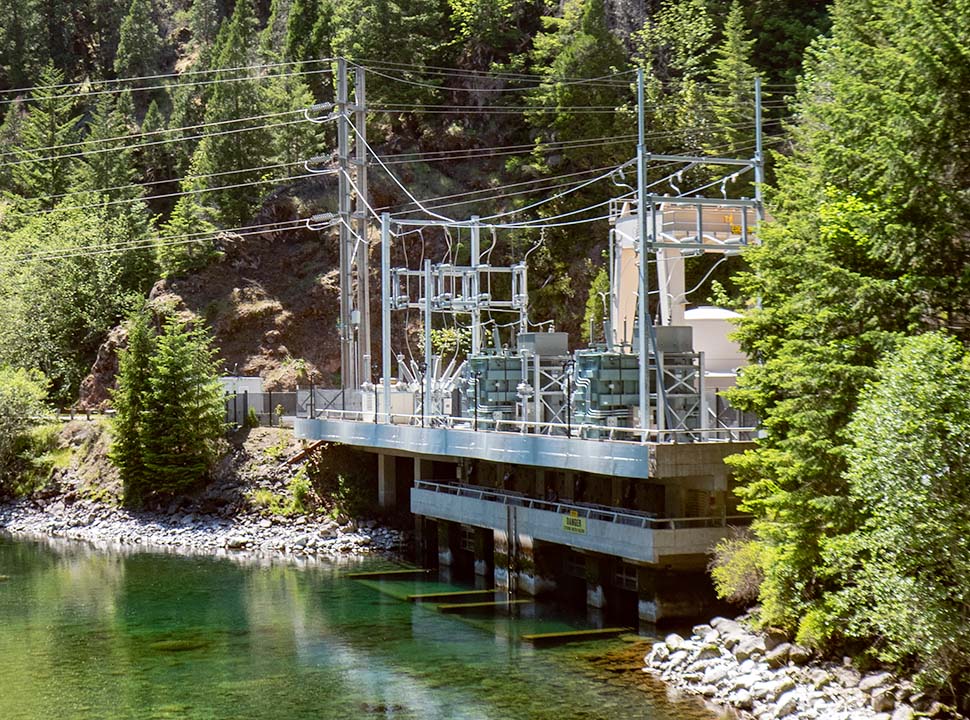Pictured: EWEB Commissioner cuts the ribbon at the grand opening of the new Currin Substation in 2024. EWEB is governed by a volunteer board of four commissioners representing specific geographic areas or "wards," and one at-large commissioner who represents all EWEB customers.
Oregon lawmakers recently passed new utility laws—the POWER Act and the FAIR Energy Act—to make investor-owned utilities in Oregon more transparent, accountable, and fair when setting rates. While these changes apply to companies like Portland General Electric and Pacific Power, EWEB customers in Eugene already benefit from similar protections through our community-owned utility model.
But if you’ve read about these laws and wondered, “Are EWEB customers protected too?” — you’re not alone. That is exactly the kind of question we want you to ask, and we’re here to answer it.
The problem: Faced with rising costs, customers want fair, affordable rates
The costs of delivering water and electricity are rising due to inflation, evolving regulations, and the urgent need to update aging infrastructure. These investments are not optional—they are critical to protecting public health, ensuring community safety, and supporting a resilient economy.
At the same time, we must consider what our community can realistically afford. As utility costs rise, customers want to know that EWEB is actively seeking savings, improving efficiency, and prioritizing the most important work. You also want to know how your rates are set and feel confident that everyone is paying a fair share.
The good news: Your utility is community-owned
Unlike IOUs, which are regulated by the Oregon Public Utilities Commission (OPUC) and must balance the interests of the shareholders, customers, and regulators, EWEB is a community-owned, not-for-profit utility. We are governed by a locally elected Board of Commissioners, and our customers are also our owners. All revenue goes back into the system to support safe, reliable, and environmentally responsible power and water—not to shareholders.
We are not bound by Oregon Revised Statutes Chapter 757, which governs IOU ratemaking. Instead, we operate under the Eugene City Charter and Oregon’s “home rule” provisions, which allow for flexible, local decision-making tailored to our community’s needs.
Why EWEB is paying attention
Even though these new laws don’t apply to EWEB, they reflect values our community shares—affordability, equity, and sustainability. They also affect the regional grid and policy environment that shapes how we plan, operate, and ultimately set customer rates.
How EWEB addresses these issues
We use a Cost of Serve Analysis (COSA) to set rates.
This is a data-driven, industry-standard method that ensures each customer class—including large users—pays their fair share of system costs. Our COSA aligns with the goals behind the new IOU legislation— making energy more affordable, transparent, and fair for Oregon residents— and is already part of EWEB’s standard practice.
We have separate rate classes for business customers.
We apply different rates to small, medium, and large commercial and industrial customers based on usage and service needs. Large energy users do not pay the same rates as residential or small business customers.
We’re governed by a locally elected, volunteer board.
Decisions about rates, budget, and services are made through a transparent public process and guided by a locally elected Board of Commissioners, ensuring accountability and representation for Eugene’s diverse interests.
Recent legislation at a glance
Senate Bill 688 – Performance-based Regulation: Allows the OPUC to require IOUs to meet performance targets (e.g. cost savings, emissions reduction, equity outcomes) to justify rate hikes.
House Bill 3546 - The POWER Act: Creates a separate rate class for large data centers, to ensure they cover the full cost of infrastructure required to serve them.
House Bill 3179 – The FAIR Energy Act: Limits how often IOUs can request rate increases and adds transparency requirements.
We’re committed to transparency about how we plan our work, manage costs, and make strategic decisions to keep your rates as affordable as possible. If you have questions or want to learn more about how your rates are set and where your dollars go, visit EWEB.org/RateInfo.





